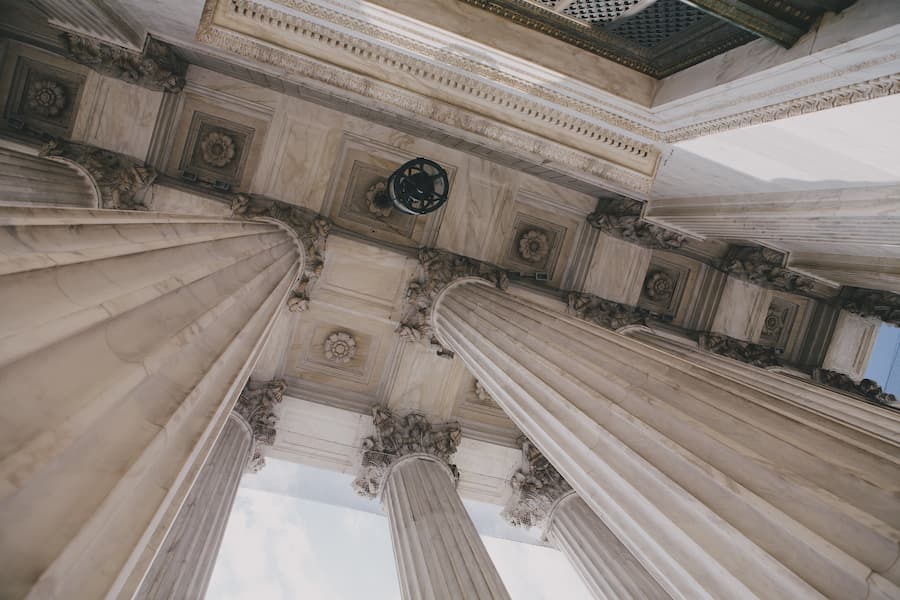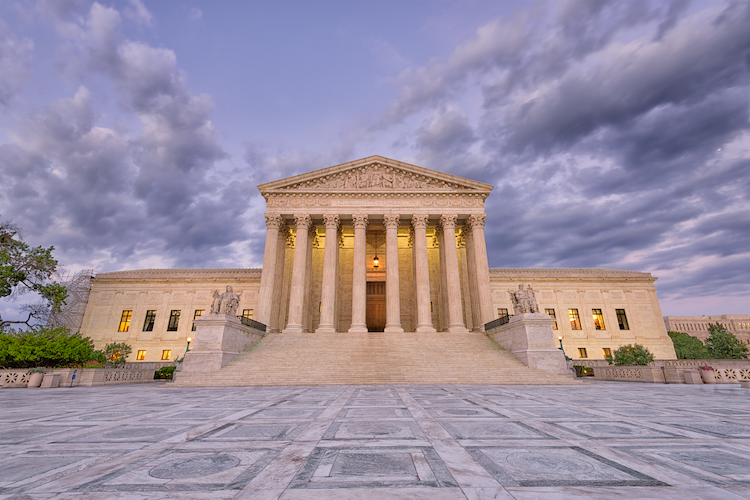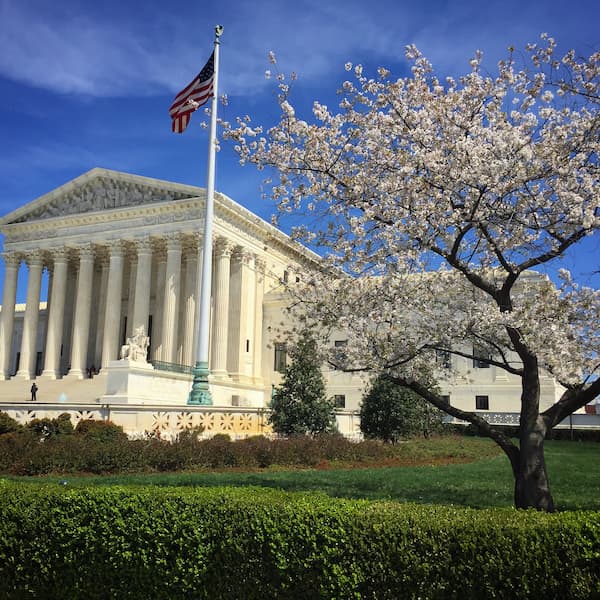Menu
Hot-Topics
February 19, 2026 | SCOTUS Reaffirms Fourth Amendment Standard for Police Responding to Household Emergencies
Month: March 2022

Supreme Court Sides with FBI in State Secrets Privilege Case
In Federal Bureau of Investigation v. Fazaga, 595 U.S. ____ (2022), the U.S. Supreme Court addressed the relationship between the “state secrets” privilege and the Foreign Intelligence Surveillance Act of 1978 (FISA). The court unanimously ...

SCOTUS Rules Kentucky AG Can Defend Abortion Law
In Cameron v. EMW Women’s Surgical Center, P.S.C., 595 U. S. ____ (2022), the U.S. Supreme Court held that the U.S. Court of Appeals for the 6th Circuit erred in denying the Kentucky attorney general’s motion to intervene on the commonwealth’s...

Supreme Court Rules Mistake of Law in Copyright Application Is Excusable
In Unicolors, Inc. v. H&M Hennes & Mauritz, L.P., 595 U. S. ____ (2022), the U.S. Supreme Court held that, under the safe harbor provision of 17 U.S.C. 411(b)(1)(A), a copyright registration is valid even though it contains a mistake of law ...

SCOTUS Kicks Off February Sitting With Oral Arguments in Three Cases
The U.S. Supreme Court recently returned to the bench for its February sitting. The justices heard oral arguments in three cases. The issues before the Court involved Native American law and immigration. Below is a brief summary of the cases befo...
Previous Articles
SCOTUS Decision in Bowe v. United States Is First of the 2026 Term
by DONALD SCARINCI on February 5, 2026
In Bowe v. United States, 607 U.S. ___ (2026), the U.S. Supreme Court held that Title 28 U.S.C. § ...
SCOTUS Rules State Can’t Immunize Parties from Federal Civil Liability
by DONALD SCARINCI on January 29, 2026
In John Doe v. Dynamic Physical Therapy, LLC, 607 U.S. ____ (2025) the U.S. Supreme Court held that...
Supreme Court to Address Racial Discrimination in Jury Selection
by DONALD SCARINCI onWhile the U.S. Supreme Court has concluded oral arguments for the year, it continues to add cases t...
The Amendments
-
Amendment1
- Establishment ClauseFree Exercise Clause
- Freedom of Speech
- Freedoms of Press
- Freedom of Assembly, and Petitition
-
Amendment2
- The Right to Bear Arms
-
Amendment4
- Unreasonable Searches and Seizures
-
Amendment5
- Due Process
- Eminent Domain
- Rights of Criminal Defendants
Preamble to the Bill of Rights
Congress of the United States begun and held at the City of New-York, on Wednesday the fourth of March, one thousand seven hundred and eighty nine.
THE Conventions of a number of the States, having at the time of their adopting the Constitution, expressed a desire, in order to prevent misconstruction or abuse of its powers, that further declaratory and restrictive clauses should be added: And as extending the ground of public confidence in the Government, will best ensure the beneficent ends of its institution.
Awards





